In the pharmaceutical industry’s landscape which is changing every day, it is common for companies to outsource their manufacturing processes to third parties to save costs, streamline production, and focus on core competencies. The third-party process, which entails reliance on external contract manufacturing companies, means that the production of pharmaceutical drugs is not carried out by the manufacturers themselves. This blog will discuss the course of the third-party manufacturers in the pharmaceuticals sector considered non-pharmaceuticals organizations, pointing out its benefits, hassles and direct steps.
Understanding Third Party Manufacturing:
Through the third party manufacturing, pharmaceutical companies can outsource the expertise and resources of the contract manufacturers to produce drugs, supplements, and medical devices. This model allows companies to produce on a large scale without substantial capital investment, use the latest technologies, and adhere to regulations.
Process Of Third Party Manufacturing In Pharma
the third party contract manufacture process in the pharmaceutical industry, from product selection, and documentary writing up to logistics, after-production support, and regulatory compliance. Enhance your knowledge about how pharmaceutical firms uptake external partnerships for faster production, quality assurance and delivery of challenging health solutions suited to diverse populations of patients across the globe.
Step 1: Product Selection
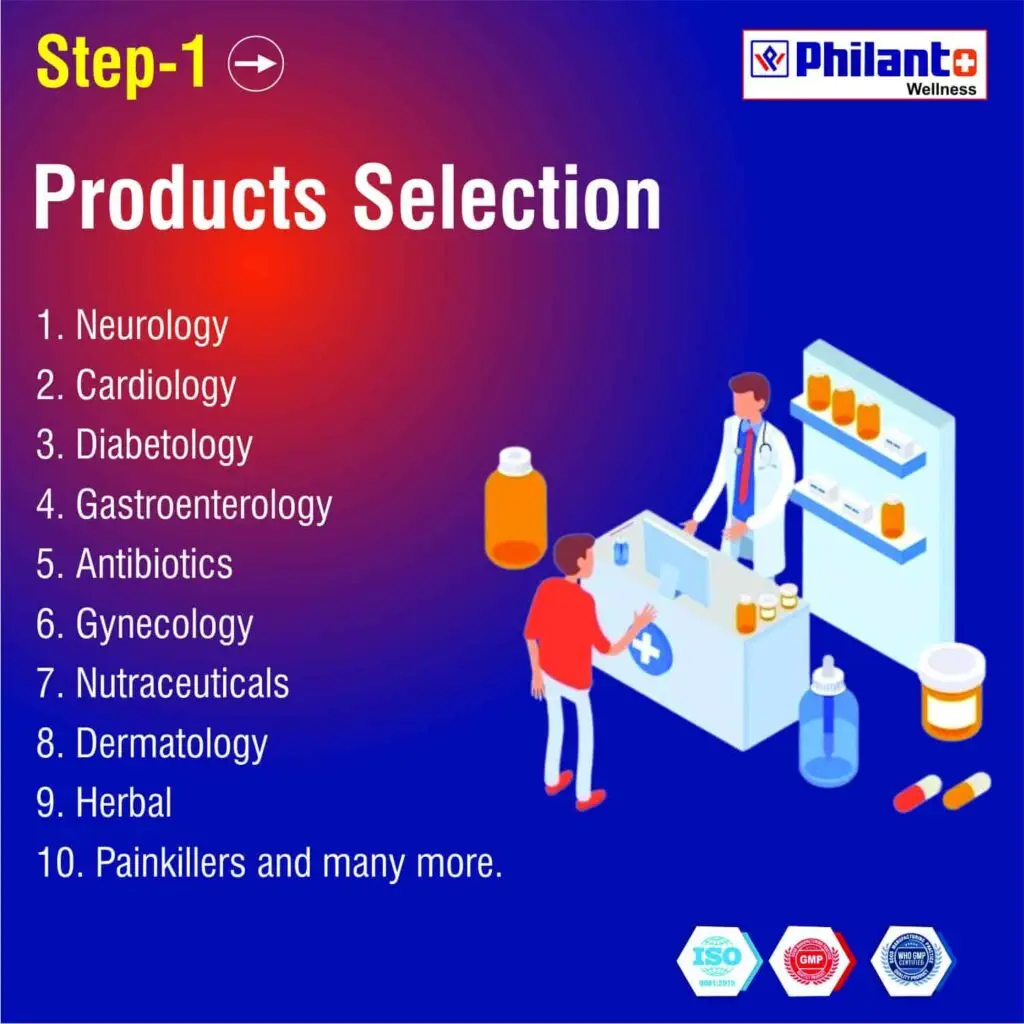
It begins with very careful product selection, as this is going to be the base of any kind of production, one should be aware of the things to make. Pharmaceutical companies must define those disease areas that the company targets, such as brain therapy and heart, dermatology and herbal supplements. This may well stand for meeting current demand, regulatory necessities, as well as uniqueness.
Step 2: Documentation
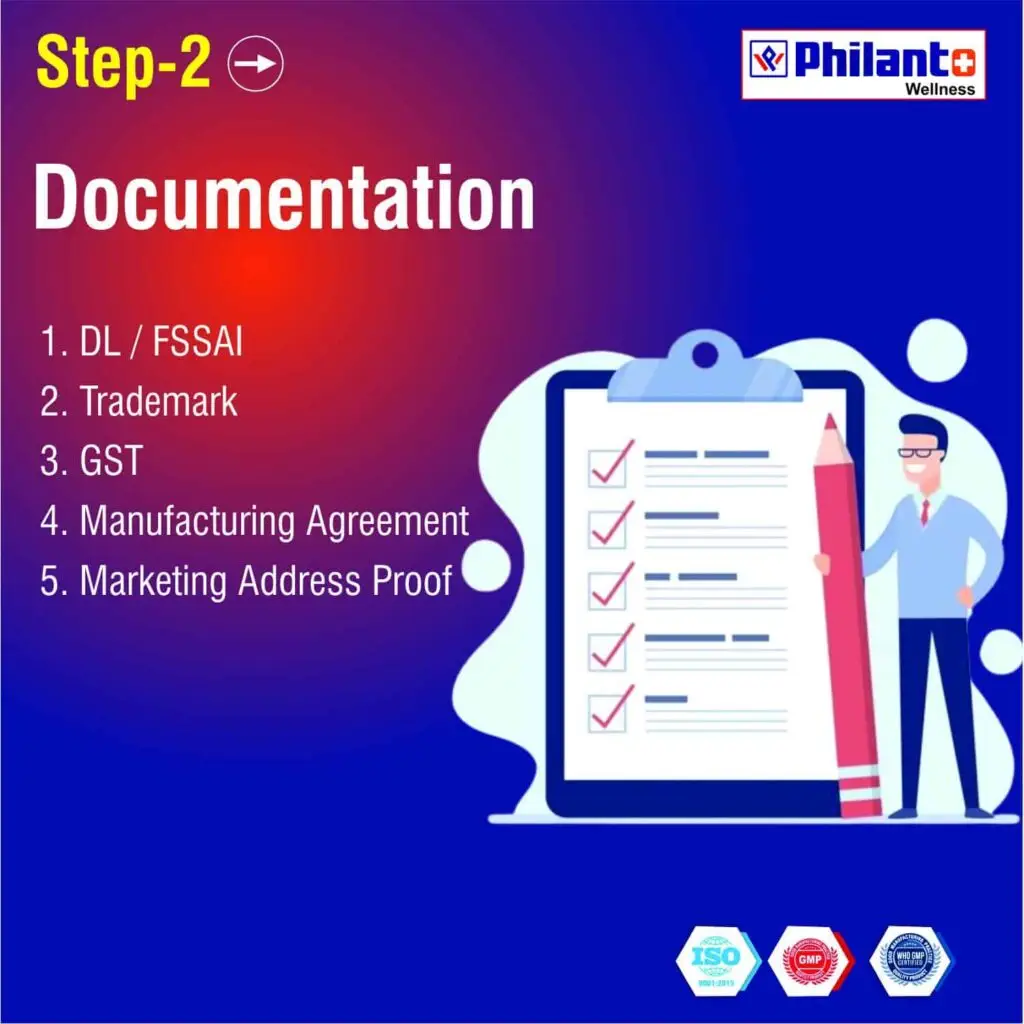
Once the product portfolio is defined, the focus shifts to essential documentation to facilitate seamless collaboration between the pharmaceutical company and the contract manufacturer. Key documents include a Drug License (DL) or Food Safety and Standards Authority of India (FSSAI) registration, trademark registration, Goods and Services Tax (GST) registration, a comprehensive manufacturing agreement, and proof of marketing address.
Step 3: Artwork & Packaging Material Design

Clear branding should be established in the pharmaceutical market to contribute to the market’s competitiveness. Partnering with creative designers, drug-producing firms come up with appealing drug product designs and branding which puts them afloat among their customers. Whether being a logo or packing design aesthetics, each small detail of the brand elements is carefully crafted to accurately reflect the brand values, make the products visible, and also be in compliance with regulations concerning labelling.
Step 4: Production & Quality Control
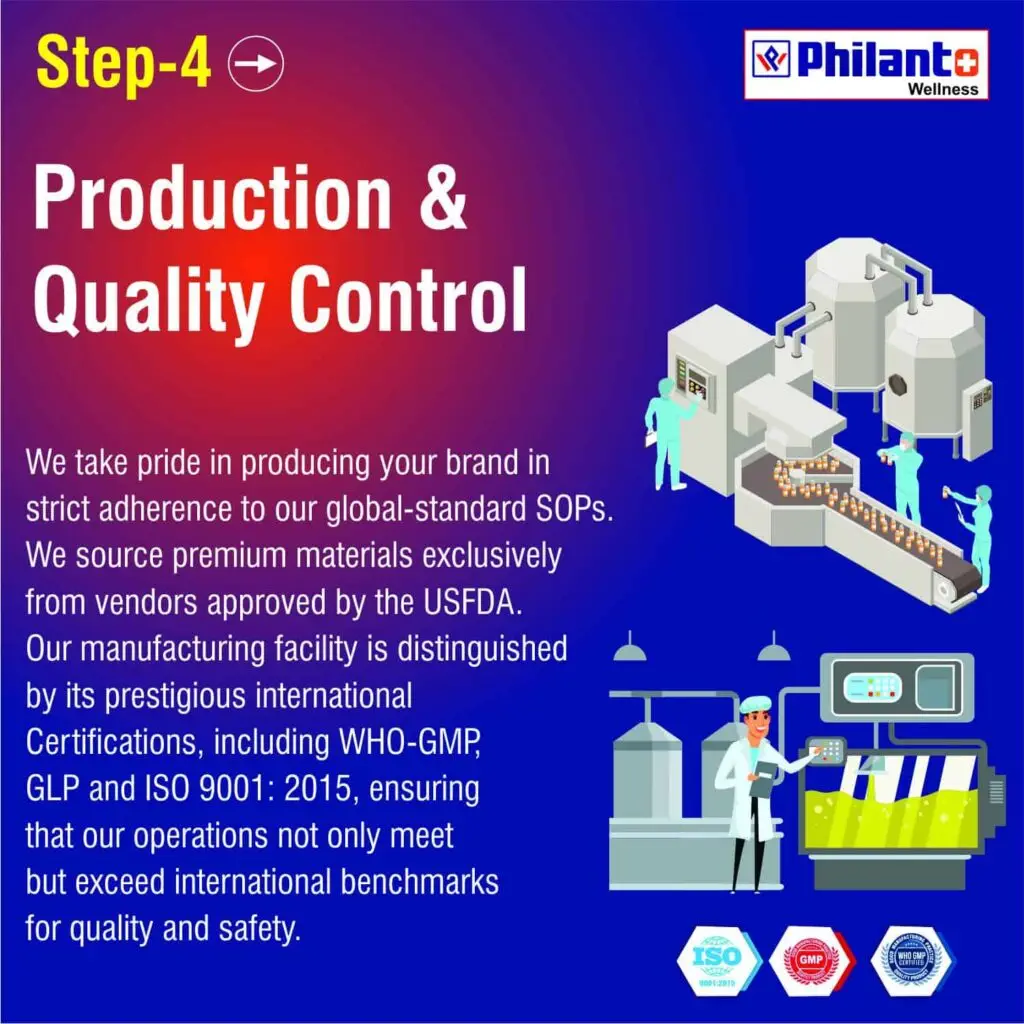
The core of third party drug production is its manufacturing and quality control process, highly regulated and accompanied by strict standards. Contract manufacturer boasts of high standards of Standard Operating Procedures(SOPs) so that they can guarantee the quality of the healthcare product, safety and efficacy. Premium materials sourced exclusively from USFDA-approved vendors are used, and manufacturing facilities boast prestigious international certifications such as WHO-GMP, GLP, and ISO 9001:Year of 2015. This certification attests to the unwavering dedication to the highest globally recognized levels of standard and safety.
Step 5: Logistics and Distribution
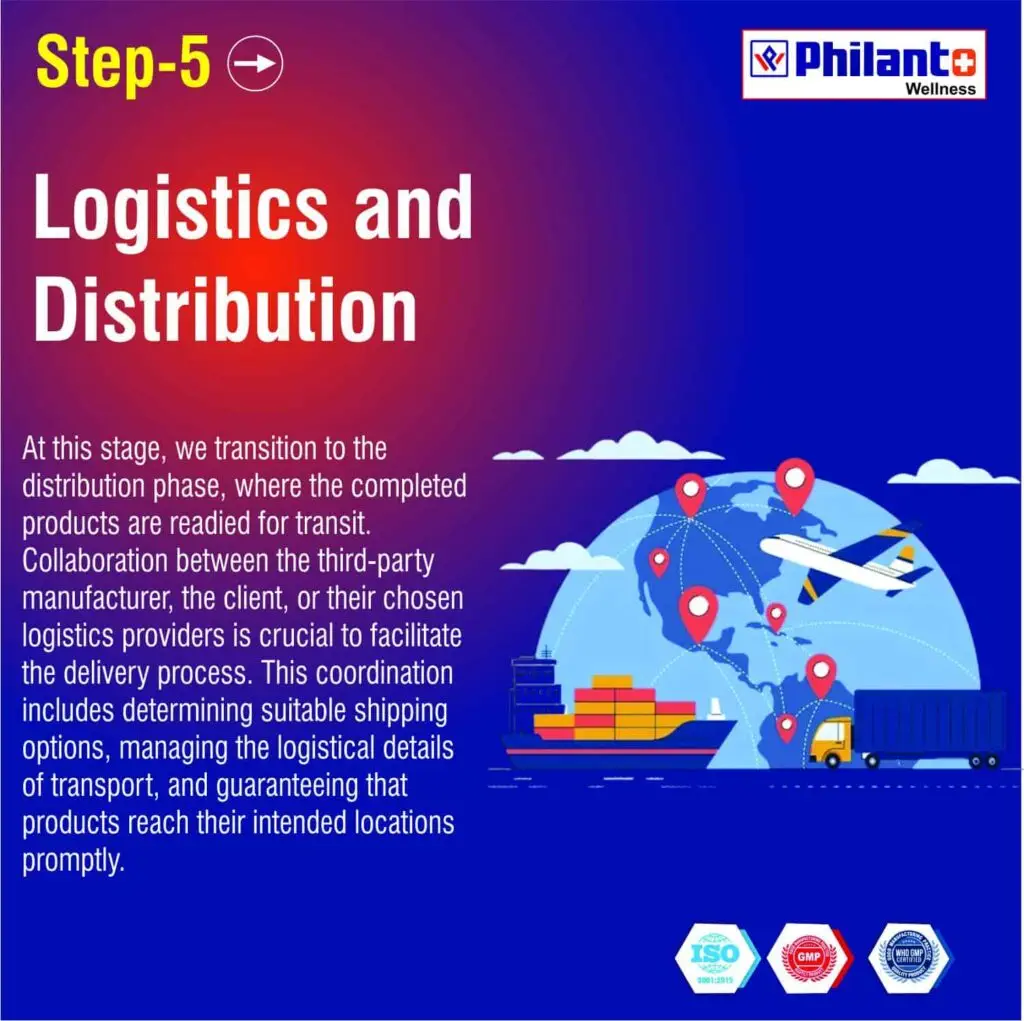
At the tail end of the manufacturing category, logistics and distribution expertise come into play. Thus, the right forethought is given to ensure the delivery of products in a timely fashion to the intended destinations. Coordination between 3rd party vendors, clientss, or logistics providers that will be used to deliver is a must to smoothly complete a delivery. Responsibility for this coordination involves just finding the right shipping channels, organizing details of logistics in transportation, and ensuring timely deliveries of products to their destination. Efficacious logistics and distribution channels ensure that product deliveries are done within the shortest possible time to reduce costs and maximize efficiency and productivity.
Step 6: Post-Production Support & Feedback
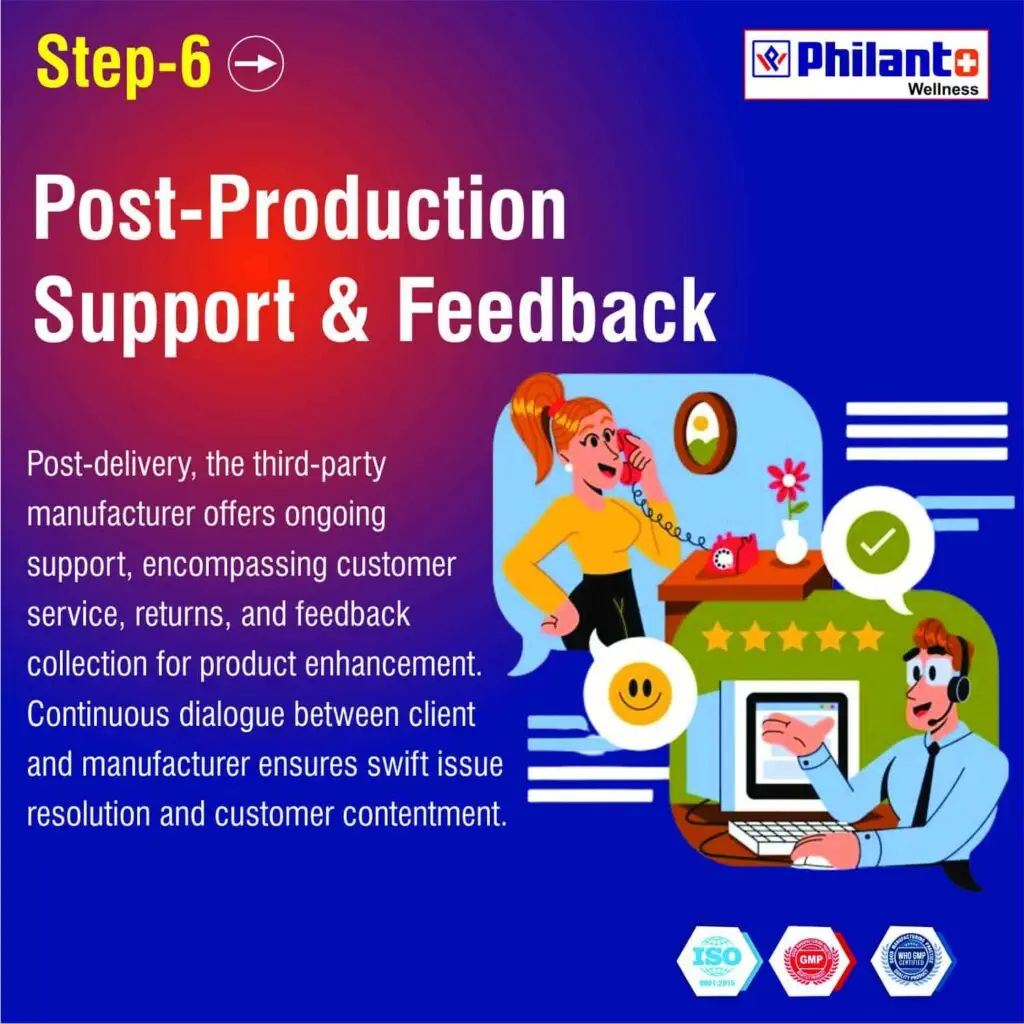
The final, but important aspect, yet, is furnishing the after-production support and evaluation. Customers in the current market share their product or service experience or interaction either through an online plan or by peers, and this allows companies to collect and utilize the information that can be used to modify their product or service designs. The thing is that this nearly gives the producer a direct connection to the consumer, so he can identify the problem and quickly solve it. These reassurances are very important to the customer satisfaction. Businesses, who are responsible for these products can let their customers be part of the survey process and subsequently use the information about the product’s improvements. The habit invoked is cyclic and bonds together, it becomes a lengthy living of brand relationships while the sustainability is enhanced.








[…] Also read : Process of Third Party Manufacturing in Pharma […]